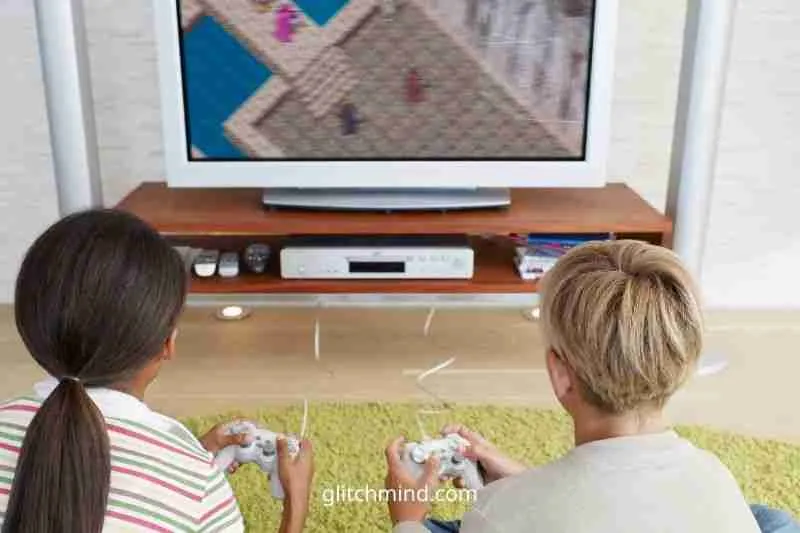Most people would never think that there could be any benefits to kid playing video games. In fact, many experts believe that video games can have a positive impact on a child’s development. Games can teach children important life skills such as problem-solving and critical thinking. They can also help children to develop hand-eye coordination and fine motor skills.
Benefits of Kid Playing Video Games
1. Video Games Help You Solve Problems
Video games can help children’s brain development. My son was just a teenager when I saw him playing Legend of Zelda. To advance, he had to search, negotiate and plan. Bakugan: Defenders of the Core is one example of a recent game that requires planning and problem-solving. Modding, customizing gamer characters and creating new levels allow for creativity, a deep understanding of the game structure and new ways to highlight personalities and interests. Video games can teach children how to think, make decisions, plan, predict consequences, and express themselves.
2. Video Games Inspire Interests in History and Culture
Some video games may encourage children to read and research. Age of Mythology and Civilization are just a few examples of video games that can spark interest in international history, geography, ancient culture, and international relations.
James Gee and David Shaffer, researchers, said that children learn a lot of complex languages, content, and connections from their parents, which prepares them to understand a deeper and more complex kind. These games allow children to create and share maps and other custom content. This helps them develop technical and creative skills while also having fun.
3. Video games help kids make friends
Young children see video gaming as an enjoyable social activity and not something to do alone, contrary to what their parents believe. Video games provide a place for children to meet new friends, allow them to have fun and give them structured time.
Our research showed that boys are more likely to play the video with a group of people, whether they’re playing in the same room or online.
Young boys also said that games were a common topic of conversation between their peers. One boy shared that his classmates mainly discussed “girls and gaming – the two Gs.” Research revealed that children with mild learning difficulties were more likely to play video games because they could make new friends.
4. Video Games Encourage Exercise
My research revealed that players, specifically boys, talked about learning new moves through video games and practicing them on the basketball court or their skateboards. After being introduced to video games, some people took up new sports. One boy said in a focus group that he saw his friends perform amazing acts in the “real” games. You can improve your skills by practicing them outside. Research has shown that exercising and playing games of realistic sports (except tournament fighting) can increase your time playing them.
5. Video games let kids share the joy of competition
It is usual for boys to be competitive with their peers, especially when trying to achieve recognition and status. My focus group research with teens revealed that “I like to play with other people and win” was a popular reason for playing video games, particularly among boys. Video games allow children to express their competitive instincts and give them a platform to succeed in sports.
6. Video games give kids a chance to lead
Children often play in groups and take turns leading or following others, depending on their skills. Nick Yee, Palo Alto Research Centre, found that teens who played online group games felt they had developed leadership skills, such as persuading and motivating others and mediating disputes. Teens have the rare opportunity to lead and participate in online multiplayer games. No matter how old you may be, if you can show your team victory, it doesn’t matter.
7. Video Games Spark Creativity
A Creativity Research journal published an experimental study that found a connection between creativity and certain video games. The 353 participants played Minecraft with or without instructions, watched a TV program or raced in a car game. Researchers found that Minecraft players who did not receive education had the most incredible creatures. This could be because they were allowed to explore the world independently.
8. Video Games Offer an Opportunity to Teach
About one-third of the studied children admitted that they play video games because they like to help others. One boy’s father revealed that his son spends most of his time playing video games with friends. It’s about finding the right way to get from one place to another or collecting the necessary items to make it work. Then, you can combine these things in ways that will help you succeed. Children who can beat the most difficult parts of a game are often referred to as “go-to” kids. Teaching others builds patience and social skills.
9. Video games bring parents and children together
Recently, I was able to see a 10-year-old friend’s daughter learn how to play Guitar Hero. My friend’s favorite songs were included in the game, which attracted her. It was amazing to see her daughter grow up and share her gaming skills with me. This is the complete opposite of the traditional parent-child relationship. It’s becoming easier to play video games together, as some systems are more friendly to beginners. Playing a videogame side-by-side can encourage easy conversation, which may, in turn, encourage your child to share her triumphs and problems.

What is unhealthy gaming?
Gaming disorder isn’t a recognized diagnosis in the United States, but it may soon be. A reference book that mental health professionals use lists symptoms of internet gaming disorders. These are some signs that your child might have unhealthy gaming habits.
- Obsessed by gaming and becomes sad, irritable or anxious when it is removed.
- Willing to play more games and cannot stop.
- They are no longer interested in the same activities they once enjoyed.
- They tell lies about how much they play gaming.
- Gaming can be used to alleviate a bad mood.
It is also a problem elsewhere in the world. The World Health Organization recognizes gaming disorder as an official condition. There are also treatment programs in China and South Korea for people addicted to gaming.
See more: 13 Games That Are Not Blocked In School
Are Video Games Safe for Children?
Video games are a prevalent pastime. Video games can have severe effects on your health. These effects can be either sound or harmful. Video games can help children learn, improve health, and develop social skills.
Both children and adults enjoy video games. Research shows that video games can be beneficial. Research also suggests that video games can disrupt sleep and lead to media addiction and violent behavior.
You may have to intervene if your child displays unusual behavior. You may need to intervene if your child exhibits unusual behavior, such as irritability or aggression when they are not playing. And You can still control violent media intake, even if they display these behaviors.
How Safe Are Video Games?
Your child can play video games relatively safely. There are many ways to protect your child, despite previous research pointing to the dangers of playing video games. By monitoring your child’s online activity and restricting their gaming, you can avoid potential harm. Talk to your child about online safety.
Your child will be more inclined to speak to you if they feel secure and trust you. You will find that they are more likely to tell you how they think about life. This will help you determine if your child is struggling or needs help. Before you start worrying about your child’s behavior and violent video gameplay, there are three things to consider: their personality, current situation, and motivations. These factors play an essential role in how they respond to violence on the screen.

Video Game Aggression: Signs in Children
Video games aren’t the only reason a child becomes aggressive. Other factors can make a child bold. However, in rare cases, your child might become addicted to video gaming. You may notice your child becoming irritable, having hallucinations, experiencing physical pain, or being at risk of becoming overweight. Research shows ways to fix many of these issues, including limiting or suspending your video gameplay.
Best Games for Children
There are many better video games than you can get for your child. Although violent video games are not necessarily conducive to violence, they can be very productive. These games will help your child socialize and engage their mind.
- Role-playing games
- Simple games
- Multiplayer online games
- Some shooter games
- Strategist games
Read also: Best Video Games For Kids In 2022: How To Buy Video Games For Kids?
How can parents avoid gambling?
Parents can take steps to stop their children from engaging in unhealthy video gaming habits. It is essential to keep track of what media your children are using. Here’s how.
Make a family media plan. To help you plan your child’s media intake, use our media planning tool. Consider what other activities video games could be replacing. Make sure media, including gaming, isn’t obstructing other essential activities such as exercise, homework, and sleep.
You should know how your child uses video games and electronic devices and which apps and fun they are downloading. You should make sure your child understands that many internet games can contain hidden messages or ads. They might also collect personal information about your child.
Keep gaming in communal areas. Of course, this is not always possible. Teens often take their smartphones to school and go back to their bedrooms. It is almost impossible to keep track of everything they do. However, it’s possible to keep track of what they do.
You can play games with your children and be a role model. This will help you see their actions and help you set time limits.
For younger children, focus on real-world games. Young children learn so much from connecting with others. Please encourage them to use crayons, books, and toys.
If you are struggling, set a good example. Gamers who are addicted to gaming may be more likely to develop depression. Distracted parents are more likely to miss signs that their child needs attention and react harshly. It’s OK to seek help if you have difficulty limiting your time on video games. Gaming can interfere with essential times with your child. It’s also harder to get your child to stop playing video games.
